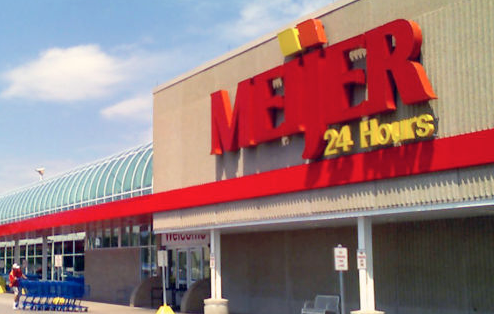
Back in 2013, I penned a piece titled “Multibillion dollar Meijer, Inc. finds another way to screw Michigan cities and kids” that went somewhat viral, getting over 60,000 hits. The gist of the piece is that Meijer, along with other so-called “big box” stores in Michigan, have used something called “dark store” valuation when determining the value of their store. This method of valuation – which ultimately determines the store’s tax bill – compares the store to other buildings in the area. Often the comparison building is either sitting vacant and therefore has a much lower value than it would if it were open for business or the site has a deed restriction that prohibits a retail store from reopening on the site. These sorts of deed restrictions are often placed on buildings that have been sold by a corporation so that they can build a bigger one nearby. The deed restriction helps protect them against competitors moving into the area.
Here’s how the “dark store” valuation trick helped out Lowes in Marquette:
“Unlike many other commercial properties,” the assessor hired by Lowe’s argued in court, “free standing ‘big-box’ stores like the subject [property] are not constructed for the purpose of thereafter selling or leasing the property in the marketplace.”
It’s an established part of the big-box retail model that the boxes themselves be custom-built, cheaply constructed, and disposable. If retailers decide that they need a bigger space, it’s cheaper for them to leave the old one behind and build a new one. When Walmart, for instance, opened its wave of new, twice-the-size Supercenters across the country in 2007, it left hundreds of vacant stores behind it. This means that new, successful stores like the Marquette Lowe’s are rarely the locations that are up for sale, and that when big-box stores do come on the market, it’s because they’ve already failed or been abandoned by the retailer that built them. In other words, Lowe’s was saying, it had built a property that, despite generating roughly $30 million in annual sales for the company, had very little value, and because of that, it should get a break in its property taxes.
When this happened in Marquette Township, the local library had to reduce its hours because the city was forced to refund Lowes $755,828.71. They literally didn’t have the money to keep the library open because they had to pay off the corporation.
In Mason, the Meijer store there received a refund of $320,165 from several public agencies, including cash-strapped Okemos Public Schools ($130,332) and the Okemos Downtown Development Authority ($86,000.)
A Michigan Court of Appeals ruling this week brings an end to this disgusting practice:
The big, owner-occupied stores are never sold as going concerns, and the owners argue the best way of assessing their value for tax purposes is by comparing sales of similar big box stores that have closed and are sitting vacant.
But in a published opinion released Thursday, a three-judge panel of the Michigan Court of Appeals ruled in favor of the City of Escanaba and against Menard Inc. in just such a dispute.
The court said the comparable sales submitted by Menards were not a good basis for determining taxable value because, like many former big box stores that close and become vacant, they had deed restrictions that limited how a new owner could use the properties.
You can read the ruling HERE.
On top of this, a bill was introduced in the State House last month with bipartisan support – House Bill 5578 – that will essentially write the court’s ruling into law.
This is good news for local communities where tax dollars from businesses located there are an essential part of providing services like schools, roads, libraries, fire fighters, and law enforcement. By using the “dark store” valuation, these big corporations are making a choice to not pay their fair share to the communities in which they reside. They are making a conscious decision to harm school kids and everyone else in the community by evading their responsibility to pay their full share of taxes.
In my original piece, I asked the question, “How much money is enough and just how greedy do you have to be before you get labeled as ‘evil’?” It looks like we will no longer have to worry about that because these corporations – who have already received massive tax cuts from Michigan Republicans at the expense of school children and retired seniors – are now going to be compelled to contribute their fair share.
Score one for the Good Guys.
UPDATE: Despite my title, this may not be over yet. These big corporations stand to take a significant hit if they are forced to pay their fair share in taxes and it is likely less expensive to appeal to the Republican-controlled State Supreme Court and to buy off lobby corporatist Republicans in the state legislature than it is to do their civic duty. The bill still has to be passed by the full House, make it through the Senate, and then be signed into law before it’s carved in stone, so to speak. Still, things look good for it happening, particularly given the wide bipartisan support it’s gotten in terms of sponsors on the bill. Time will tell.
Stay tuned.
[Public domain image credit: Mrmiscellanious | Wikimedia Commons]



